Does Acupuncture hurt? This is probably the most common question when it comes to Acupuncture. People have amazing imaginations in conjuring up all kinds of imagery when imagining what Acupuncture is really like. In this blogpost, we take a look at ways in which the practitioner can make Acupuncture a relaxing and comfortable experience for you.
What's the first thing you think of when you think "needles"? Pain, stabbing, sharp, associating it with getting a blood test, or even trauma from going to the doctor's as a child and getting your latest jab....
Not the greatest experience, right? Well Acupuncture needles are NOTHING like those needles, and here's why:
- The smallest needle you can purchase is 0.16mm wide. This is a flimsy, almost hair-thin needle.
- Acupuncture needles are solid, not hollow.
- Nothing is being injected into you, there is nothing coming out of the needle.
- Acupuncture needles are placed over muscle tissue, not blood vessels
- They are smaller, sharper and less invasive
The aim of Acupuncture is to work with the body's natural processes, not against them, nor forcing ANYTHING. Acupuncture stimulates positive things such as endorphine release, dopamine release, the feel-good chemicals your body produces. Ultimately you feel more relaxed, at ease and calm. Your parasympathetic nervous system is activatedand you drop into your "rest & digest" state or recovery state. All the good stuff.
None of the fear, tension, pain associated with Doctors visits.
Here are some other reasons why you'll find Acupuncture a relaxing experience:
- Registered Acupuncture Practitioners have a minimum of 4 years needling training
- They are experts at needling technique
- They are University level trained, with high skill criteria
- They do this day in, day out, its their mastered skill.
- Stress counteracts the benefits of what a practitioner is trying to achieve, they want you to be comfortable. To the point of you wanting to drift off and take a nap.....that's how relaxed.
- Acupuncturists use guide tubes which help get the needle in quickly and painlessly.
- Breathing helps! You can't tense up when you exhale and deep breathing activates the vagus nerve, perfect for getting you to the parasympathetic state faster.
- Experience helps - Ask about your practitioners experience, I've been practising since 2003.
Dry Needling vs. Acupuncture
Dry needling is NOT Acupuncture. Acupuncture looks at the body wholistically, Dry needling zones in on the injured site.
Dry needling is taught as a weekend course or a week at the most, with no internal clinic hours required. Acupuncturists have spent 4 years doing clinic hours before they graduate and are treating the public.
Dry needling is a tool used by physiotherapists, chiropractors and osteopaths, along with other techniques to supplement their practice. Acupuncturists just needle people day in, day out. It's their mastered skill.
Dry needling aims to get a twitch out of trigger points to release a muscle and can involve active probing until that occurs. Bruising often happens with this needling style.
Acupuncture aims to stimulate acupoints along meridians or trigger points, but in a more gentler way. Often tapping the needles in and leaving them for 15-20 min is common. Depth is not always inportant, some Japanese techniques thing superficial needling is just as effective. Acupuncture can assist a whole lot more than muscular pain, it is whole body medicine and can help digestion, hormones, sleep, stress and skin conditions to name a few.
What to do next...
If you're worried or concerned about Acupuncture hurting, please leave your comments below. I'm a registered Acupuncturist and a self-confessed needle phobe (hilarious, I know!) and I would love to answer your questions about this topic. Knowledge is power and I'd love to hear your story. Comment below or email me at info@familywellnesscentre.com.au
Imagine that! A sympathetic needle-phobic Acupuncturist treating you. I put myself in my clients shoes to provide them with a comfortable, relaxing Acupuncture experience.


